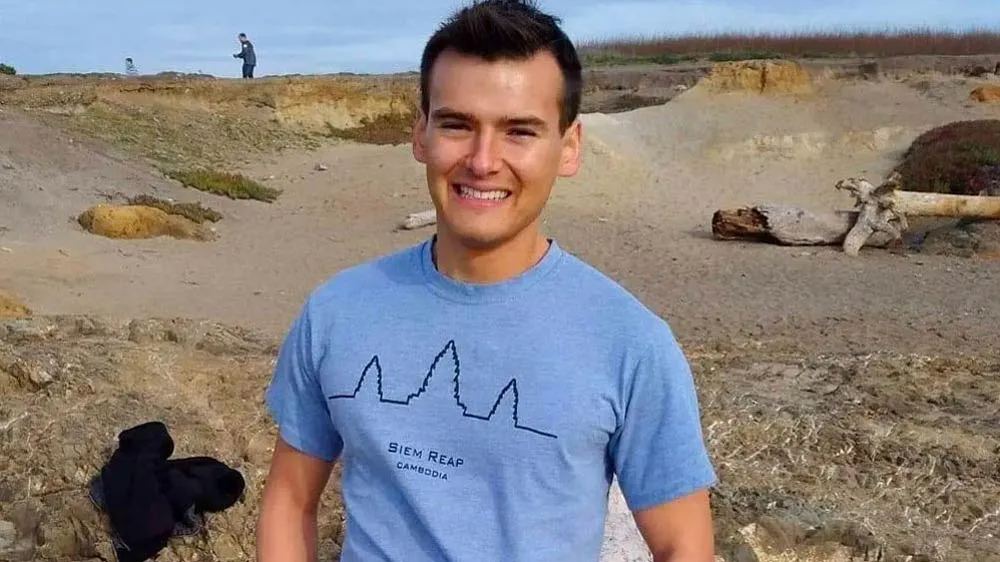February 19, 2009
UK and US Gay Asylum Cases: A Mixed Bag
Kilian Melloy READ TIME: 6 MIN.
In an attempt to reverse a potentially deadly decision, England's High Court has ordered that the Home Secretary, Jacqui Smith, "use her best endeavors" to see that a deported gay man is brought safely back to the UK.
The story was carried on Feb. 19 by UK newspaper The Independent, which referred to the deported gay man only as "Mr. X," and was not able to specify the nation to which he had been returned.
Mr. X had lived and worked for seven years in England before his asylum claim was rejected, the article said.
The redaction of the man's name and nation of origin was mandated by the High Court judge because the man, reportedly in hiding, must be shielded from reprisal and persecution.
Deputy judge Sir George Newman of the High Court called the deportation of "Mr. X" "manifestly unlawful" because it seemed that immigration officials had intentionally misinformed him about where he was being taken, shuttling him to an airport, from which he was deported, rather than to authorities, as he had been told.
This action, Newman found, blocked the man from making use of his right to legal counsel, the Independent article reported.
Judge Newman viewed this as an attempt "to avoid any complication that could arise from his removal becoming publicly known."
As part of the deportation proceeding, the man was physically assaulted, handcuffed, and effectively had his legs shackled, before being loaded onto the plane and flown out of the country.
The article also noted that the man's cell phone had been confiscated, contrary to laws stipulating a three-day period that allows deportees to contact legal counsel, friends, and family members.
Said the judge, "It seems to me they deliberately misled him to avoid him making any contact with the Refugee Legal Center."
The Home Secretary's own attorneys acknowledged the illegality of the man's deportation, the article said.
Judge Newman declared, "Justice requires he should, if possible, be brought back to this country so that he can make his claim as effectively as he can."
Added the judged, "Without hesitation, I exercise my discretion to grant the claimant a mandatory order that the Secretary of State should use her best endeavors to secure his return to the UK."
In a statement prepared after his deportation that was delivered to the court, Mr. X said that after his repatriation he had been beaten and detained. He said that he had gone into hiding because of this mistreatment.
In his ruling, Judge Newman dismissed the argument made by the Home Secretary that if Mr. X were brought back to England, he would only be deported again later on.
Said Judge Newman, "I find it impossible to conclude, on the basis of the evidence as it now is, that there is not the real possibility that a judge might find that he is at risk if he is returned... by reason of his homosexuality."
In another case regarding a gay refugee, the Home Secretary has agreed to take another look at the case of an Iranian woman who left Tehran following the arrest and death sentence of her female partner.
The London News.net reported on Feb. 17 that Pegah Emambakhsh won refugee status and safety, at least temporarily, after first being turned down for asylum, only to win the sympathy of the public through the work of a GLBT group, a human rights group, and politicians who took her side.
A group dedicated to her safety, the Friends of Pegah, also played a role; member Lesley Boulton was quoted in the article as saying, "This is fantastic, wonderful news."
In America, however, such good news was not given to a gay refugee from Sierra Leone.
The Washington Blade reported in a Feb. 18 article that the refugee had not proven that he would be arrested and tortured for being gay in the event of his repatriation.
The nation of Sierra Leone, as is the case with many former British colonies, punishes consensual gay sex between adults severely: Life imprisonment is the sentence in that nation.
A recent study found that many former British colonies had kept stringent laws against gays on the books as part of their post-colonial legacy.
A Human Rights Watch report titled "This Alien Legacy" traced a majority of anti-gay laws world-wide to an 1860 law that India found itself subjected to by British colonizers looking to "reform" the natives and "protect" the British occupiers.
After the fact, according to the report, the leaders of those nations came to view the anti-gay laws as part of their pre-colonial heritage, despite the laws having been imposed by the colonizing British.
The young refugee (whose name is redacted here by his own request) had claimed that after his homosexuality was revealed, his own family threatened to kill him.
The Blade article said that a brief from the young man's lawyer read in part, "[He] gravely fears and is at particular risk of being arrested, tortured, detained, imprisoned, or killed by both his family and the authorities."
The gay refugee had initially filed for asylum on his own, with no legal representation, and was answered by U.S. officials with a Notice of Intent to Deny, which stated, "In order to receive asylum, an asylum-seeker must show actual past persecution or a well-founded fear of future persecution on account of race, religion, nationality, membership in a particular social group or political opinion."
The Notice, written by Ann M. Palmer, was issued on Nov. 19 last year, the article said.
The Notice continued, "The persecutor you fear [is] that portion of the general society that is homophobic.
"You have not shown that such a persecutor is aware of your characteristic," the Notice added.
"You have not shown that the government has an inclination to persecute you."
Holland & Knight lawyer Christopher Nugent has since come to represent the young refugee free of charge. The lawyer has made a point of underscoring how police raided the man's apartment, which he shared with his partner; in the course of their search of the premises, the police uncovered photos of the men engaged in sexual acts.
The police then went to the young man's family and employer to out him, according to Nugent.
Said Nugent, "We're hopeful that the asylum office will reconsider their decision given the clear risk of harm, including torture, incarceration or death to our client... based on the plethora of additional evidence that's been submitted.
"It shows that there's a clear pattern and practice of persecution of outed homosexuals in Sierra Leone," said Nugent, although the reason for the initial search seemed to be that the refugee's partner was a suspect in a drug case.
"We believe he would even face the prospect of being arrested upon arrival at the airport," Nugent added.
The refugee in question was warned by his partner during a prison visit, following the police raid. He then left the country and headed for America, where he his daughter lives with her mother.
After his departure, police paid a visit to his family and his employer to out him.
The gay refugee said he received a call from his mother to inform him that he had been "disowned," the article said.
Said the young man, "She told me that if I ever come back home, they would have me killed."
The refugee, who studied and worked in London, has a background in the world of non-profits. He and his partner sought to establish a non-profit in Sierra Leone to benefit gays and lesbians, and had befriended a lesbian who was subsequently murdered, possibly with the knowledge of the police, the article said.
Time for the gay refugee is running short: The article said that his visa will no longer be valid as of Feb. 27, at which time Nugent believes immigration officials will begin the process of deporting his client.
If need be, the refugee could appeal once deportation proceedings had been ordered.
Nugent said that if he is returned to Sierra Leone, there is no way that his client can avoid recognition and persecution.
"He's reportedly the talk of Sierra Leone," Nugent was quoted as saying.
"It's a very small country. Now he's a well-known gay who is seen as the cause of shame for the family, culture, community and his country.
"It's tantamount to a death sentence for him to go back," added Nugent.
The article said that at least one prominent U.S. politician has spoken out on behalf of the refugee, the article noted.
Openly gay Congressman Barney Frank wrote to immigration officials that, "I have been informed through many human rights reports and human rights activists of the life-threatening conditions that openly gay people face in Sierra Leone, including risk of abuse and imprisonment and risk of immediate arrest, imprisonment, torture, and death by authorities.
"If [the refugee in question] is forced to return to Sierra Leone," continues Congressman Frank's letter, "he will surely not be able to live as an openly gay man and will face life-threatening conditions from not only the authorities, but also his family."
Kilian Melloy serves as EDGE Media Network's Associate Arts Editor and Staff Contributor. His professional memberships include the National Lesbian & Gay Journalists Association, the Boston Online Film Critics Association, The Gay and Lesbian Entertainment Critics Association, and the Boston Theater Critics Association's Elliot Norton Awards Committee.







